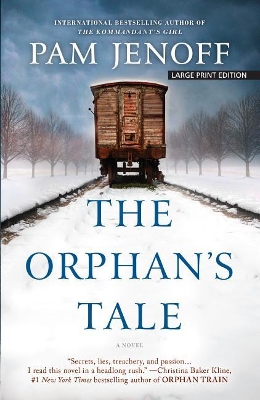Reviewed by Terri M. LeBlanc on
I’m still searching for the next great WWII historical fiction novel. Over the years, I’ve read a lot and each year another two or three books are released that dig up some unknown story from that era. In The Orphan’s Tale, Jenhoff mines the history of European circuses to tell the story of friendship based on the true stories of circuses hiding those fleeing from the Nazi regime.
Astrid and Noa’s story sucked me in. With a bit of mystery and secrets and the tension of learning to be a trapeze artist, I followed along rapidly turning the pages. I am always amazed when authors find some bit of history and turn it into a compelling story (read my review of Sal to the Sea). While it didn’t take me long to read The Orphan’s Tale and I was drawn into Astrid and Noa’s friendship, the ending fell a bit flat. It seemed rushed and the decisions made by the characters at the end seemed rash and out of character. The story just ended. And while there was a resolution, I didn’t find it satisfying.
Overall, The Orphan’s Tale is a solid story. I’ll admit there were tears and it only took me a day to read this book from cover to cover. When I finished, I craved more circus stories and wanted to re-read Water for Elephants or The Night Circus. But I will admit that the emotional pull of this story was not found in the characters, but in the history of how the circuses moving across Europe strived to bring normalcy to the public and provide a refuge for those running for their lives at the peril of the cirucus itself.
Reading updates
- Started reading
- 1 July, 2017: Finished reading
- 1 July, 2017: Reviewed
